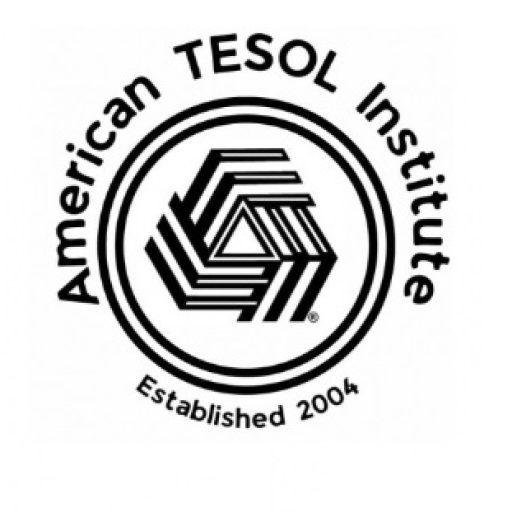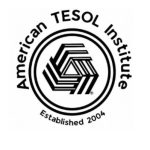As the demand for English language proficiency continues to grow worldwide, the role of TESOL (Teaching English to Speakers of Other Languages) educators has become increasingly crucial. TESOL International programs are designed to equip teachers with the skills and knowledge necessary to meet the diverse needs of English learners across the globe. With opportunities spanning continents such as Asia, Africa, Europe, and Latin America, these programs offer educators the chance to not only enhance their teaching careers but also to immerse themselves in new cultures and contribute to global education.
TESOL Programs in Asia
1. High Demand for English Proficiency: Asia is home to some of the world’s fastest-growing economies, and English proficiency is seen as a vital skill for both personal and professional success. Countries like China, South Korea, Japan, and Thailand have large populations eager to learn English, creating a high demand for qualified TESOL educators.
2. Diverse Teaching Opportunities: TESOL programs in Asia offer a wide range of teaching opportunities, from teaching young learners in primary schools to conducting business English courses for professionals. The region’s diverse cultures and languages also provide educators with a unique opportunity to develop culturally responsive teaching practices.
3. Cultural Exchange: Teaching in Asia allows educators to immerse themselves in rich cultural traditions, from experiencing the vibrant festivals of India to exploring the historical landmarks of Vietnam. This cultural exchange enriches both the teaching experience and the personal growth of educators.
4. Competitive Benefits: Many TESOL positions in Asia come with competitive salaries, accommodation, and travel allowances, making it an attractive destination for teachers seeking both financial stability and adventure.
TESOL Programs in Africa
1. Expanding Educational Access: In Africa, TESOL programs play a crucial role in expanding educational access, particularly in rural and underserved communities. English is often the language of instruction in many African countries, making TESOL educators vital to improving literacy rates and educational outcomes.
2. Social Impact: TESOL educators in Africa have the opportunity to make a significant social impact. By teaching English, they contribute to the empowerment of students, opening doors to higher education, employment opportunities, and better livelihoods.
3. Culturally Enriching Experience: Africa’s diverse cultures and languages provide TESOL educators with a deeply enriching experience. From the vibrant markets of Nigeria to the stunning landscapes of Kenya, educators can engage with local communities, learn new languages, and participate in cultural traditions.
4. Professional Development: TESOL programs in Africa often involve working in challenging environments, which can greatly enhance an educator’s professional skills. Teachers learn to adapt to different educational settings, develop creative teaching strategies, and gain a deeper understanding of global education issues.
TESOL Programs in Europe
1. Rich Educational Traditions: Europe offers a diverse range of TESOL opportunities, from teaching in prestigious language schools to working with refugee and immigrant communities. The continent’s rich educational traditions and emphasis on language learning make it a prime destination for TESOL educators.
2. Multilingual Environment: Europe’s multilingual environment provides a unique challenge and opportunity for TESOL educators. Teachers often work with students who are already multilingual, which requires innovative teaching strategies that cater to different linguistic backgrounds.
3. Cultural Immersion: Teaching English in Europe allows educators to immerse themselves in the continent’s rich history, art, and culture. Whether it’s exploring the museums of Paris, the architecture of Rome, or the music of Vienna, educators have endless opportunities to experience European culture firsthand.
4. Networking and Professional Growth: Europe is home to numerous international conferences, workshops, and TESOL associations, offering educators ample opportunities for networking and professional development. These events allow teachers to stay updated on the latest trends in language education and connect with peers from around the world.
TESOL Programs in Latin America
1. Growing Demand for English: Latin America is witnessing a growing demand for English proficiency, particularly in countries like Brazil, Mexico, and Colombia. English is increasingly seen as a key skill for economic and social mobility, driving the need for qualified TESOL educators.
2. Community Engagement: TESOL programs in Latin America often involve close community engagement. Educators work directly with local schools, community centers, and NGOs, making a direct impact on students’ lives and contributing to community development.
3. Vibrant Culture: Latin America’s vibrant culture offers TESOL educators a dynamic and colorful teaching environment. From the music and dance of Cuba to the rich history of Peru, educators can immerse themselves in diverse cultural experiences that enrich their teaching and personal lives.
4. Language Exchange: Many TESOL educators in Latin America also take the opportunity to learn Spanish or Portuguese, creating a two-way language exchange that benefits both the teacher and the students. This exchange enhances cross-cultural communication and deepens the educational experience.
Choosing the Right TESOL Program
When selecting a TESOL program abroad, educators should consider several factors:
- Accreditation and Reputation: Ensure that the TESOL program is accredited and recognized by international education bodies. A well-regarded program can significantly enhance your career prospects.
- Cultural Fit: Consider the cultural environment you’ll be working in and whether it aligns with your personal and professional goals. Some educators thrive in bustling urban settings, while others prefer quieter, rural communities.
- Support and Resources: Look for programs that offer strong support systems, including pre-departure training, ongoing professional development, and resources for cultural adaptation.
- Career Opportunities: Research the job market in the region you’re interested in. Some areas may offer more lucrative or stable job opportunities than others, depending on the local demand for English teachers.
Conclusion
TESOL International programs offer educators the chance to expand their horizons, both professionally and personally. By teaching English in diverse regions like Asia, Africa, Europe, and Latin America, educators can make a meaningful impact on students’ lives, experience new cultures, and develop a global perspective on education. Whether you’re a seasoned teacher or just starting your career, TESOL programs provide a pathway to adventure, growth, and the opportunity to contribute to global education.
If you’re passionate about teaching and eager to explore the world, consider joining a TESOL International program. Your journey as a global educator could be just the beginning of an incredible adventure.


